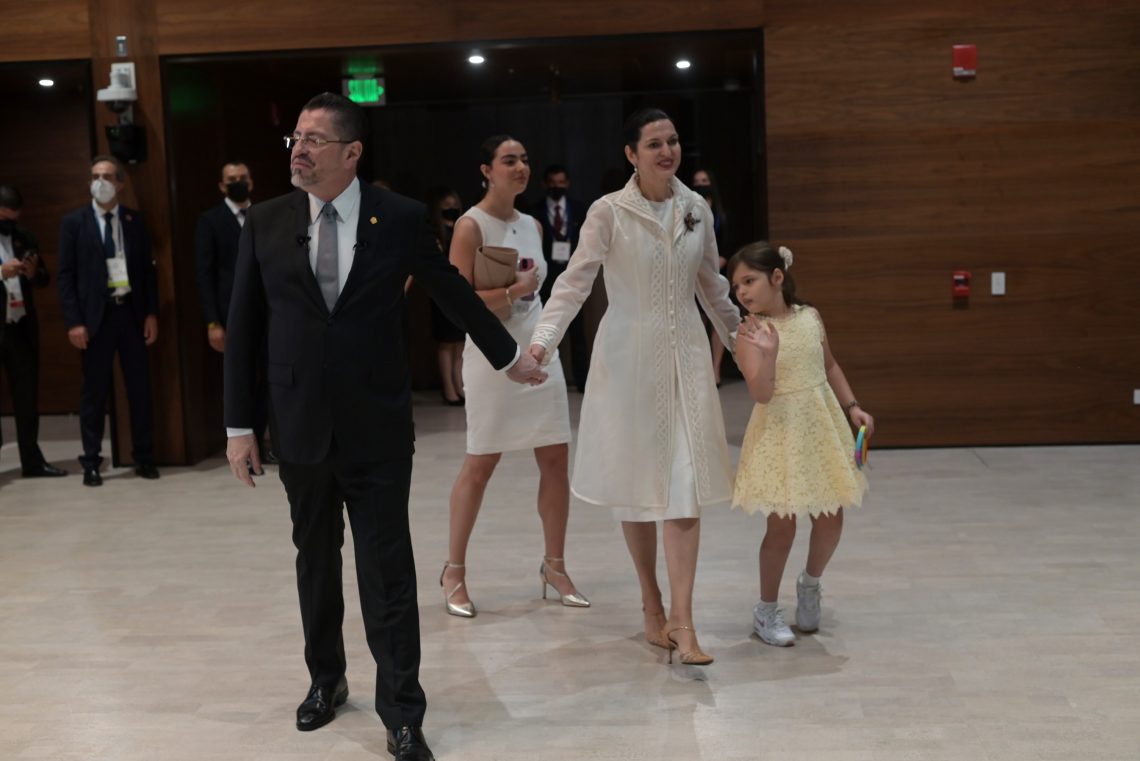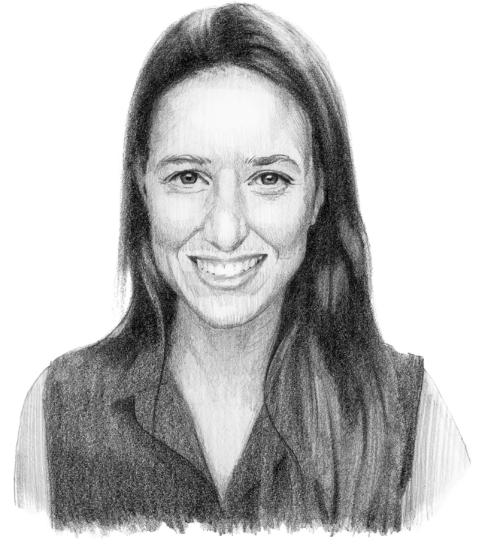Troubles in Costa Rica’s tropical paradise
New President Rodrigo Chaves campaigned as an outsider willing to take on Costa Rica’s establishment, but he starts with few allies to advance his corruption-fighting agenda.

In a nutshell
- Costa Rica remains a democratic role model in Latin America
- The new president comes to power with a weak mandate
- Poverty, unemployment, income inequality and debt are key issues
Costa Rica, which abolished its armed forces in 1948 following a civil war, has long been a bastion of democratic stability in Latin America and its April 3 presidential election only enhanced that reputation.
Under Costa Rica’s Constitution, presidents elected to four-year terms are banned from seeking reelection until eight years after leaving office. That left ex-President Carlos Alvarado Quesada, who helped make Costa Rica a world leader in renewable energy, sitting this race out.
In a field that started with 25 candidates, antiestablishment contender Rodrigo Chaves Robles emerged victorious from the runoff vote, defeating ex-President Jose Maria Figueres, a member of Costa Rica’s most famous political family. Mr. Figueres led the Central American nation of 5.2 million people from 1994-1998, while his father – Jose Figueres Ferrer – served three terms.
Mr. Chaves, who won by more than five percentage points, was inaugurated on May 8, becoming the 49th head of state since the nation’s independence from Spain in 1821.
Voters also elected new representatives to their 57-seat unicameral legislature, called the Legislative Assembly.
In both the presidential and legislative elections, the outcomes were widely accepted by the public as reflecting the will of the voters. There were no protests, no accusations of stolen votes and no lawsuits contesting the results.
Scandals and challenges
But a look below the surface shows problems in this tropical tourist paradise, slightly larger than Denmark, with mountainous regions between its Caribbean Sea east coast and Pacific Ocean west coast.
Among the troubling indicators in the isthmus nation are a poverty rate of 24 percent, unemployment of 14 percent, and a history of domestic corruption.
Both candidates in the runoff election were weighed down by scandal.
Mr. Figueres, who represented the centrist National Liberation Party, is tainted by a lucrative lobbying contract after leaving office in 1998. He was never charged with any criminal wrongdoing, but he has never been able to shake the implication that he influenced state contracts in exchange for the money.
Mr. Chaves, a former finance minister under Mr. Alvarado, won despite being implicated in a pattern of sexual harassment – accusations he denied – during his 30-year career at the World Bank. He prevailed by positioning himself as an outsider willing to take on the establishment. He represented the relatively new Social Democratic Progress Party, formed only in 2018.
After his victory, President-elect Chaves struck a conciliatory tone with Mr. Figueres, setting aside the incendiary rhetoric of the heated campaign. He also, interestingly, vowed to combat the sexual harassment of women.
Mr. Chaves won after campaign promises to shake up the political system and economic structures.
Despite their differences, both adopted similar stances on reviving Costa Rica’s tourism-based economy – badly battered by the Covid-19 pandemic – and making the nation more investor-friendly. They also pledged to seek better terms in loans from the International Monetary Fund.
But Mr. Chaves won after campaign promises to shake up the political system and economic structures. He told voters he will fight against the “corrupted elites” by bypassing the Legislative Assembly through public referendums. During the campaign, the candidate castigated the country’s traditional parties, business leaders and news media. He pledged to streamline government and reduce government monopolies in the energy sector.
Facts & figures
Weak mandate
But the president may not have a strong mandate to challenge the status quo, despite his electoral victory. Only 57 percent of voters cast their ballots – the lowest turnout since the 1940s – reflecting the lack of enthusiasm for the two finalists. Trust in politicians has waned after countless public corruption scandals. The negative campaign also turned off voters.
And their well-publicized scandals hurt both candidates.
Mr. Figueres struggled to distance himself from corruption accusations related to nearly $1 million in consulting fees he received from Alcatel, a French telecommunications company, after leaving the presidency in 1998. He was forced to resign in 2004 as executive director of the Geneva-based World Economic Forum for not disclosing the relationship.
The campaign of Mr. Chaves, meanwhile, came under investigation by electoral authorities for allegedly running an illegal funding scheme. The candidate said he knew nothing about the funds in question. He also had to fend off accusations of sexual harassment, findings that led to his demotion from the World Bank, which he quit in 2019. Given the baggage of both men, Mr. Chaves may have ultimately benefited as the representative of a new political force, offering a contrast with the established Citizens Action Party, which has governed for the last eight years.
Mr. Chaves could have trouble achieving his goals. His coattails proved to be short, leaving him without a strong mandate. His political party has only 10 seats in the 57-member Legislative Assembly, a circumstance that will force him to negotiate with opposition parties and form alliances to achieve his agenda.
Reviving the economy
Costa Rica’s election took place only two years after the country’s worst recession in four decades, when the economy shrank 4.5 percent amid the global pandemic, which hurt the all-important tourist industry. Growth of 7.6 percent returned in 2021, but the forecast for 2022 is for only a 3.4 percent increase in gross domestic product.
The poverty rate of 24 percent and unemployment of 14 percent are strong signs that citizens are suffering.
While Costa Rica remains relatively affluent compared to its neighbors, with roughly $10,000 in per capita income in 2021, the poverty rate of 24 percent and unemployment of 14 percent are strong signs that citizens are suffering. Moreover, the debt-to-GDP ratio has topped 70 percent, the highest in Central America.
The downturn strained finances and threatened public services, forcing the government in July 2021 to accept a $1.8 billion bailout loan from the International Monetary Fund. The IMF’s austerity requirements as conditions for the loan have proved unpopular.
While better off than its regional neighbors, Costa Rica also has extreme income equality, with citizens of border and rural areas suffering the most. The Gini coefficient, a measure of income inequality, is one of the highest in the region and the highest among Organization for Economic Cooperation and Development countries, which contributes to public discontent with the political class.
Strong international role
Costa Rica’s biggest trade partner is the United States, which is counted on to provide the nation’s security in the event of war. But China is also an essential supplier and Mr. Chaves sees the world’s most populous nation as a source of tourists.
Costa Rica’s president will be expected to continue serving as a role model of democracy in a region that includes such dictatorships as Venezuela and Nicaragua, where Daniel Ortega last year won a sham election. Costa Rica does not recognize the Ortega government.
In rolling back the authoritarian tide, Costa Rica is aligning with the Dominican Republic and Panama. The three nations in 2021 formed the Alliance for Development in Democracy. A test of their political strength will come next year in Guatemala’s elections, where fairness and competitive elections are far from assured.
Also, in El Salvador, President Nayib Bukele is seeking reelection in 2024 after a court ruling set aside a ban on consecutive terms.
In Honduras, President Xiomara Castro’s ability to govern remains uncertain. Her government started rival candidates claiming leadership of Congress – a bad sign for a country with a recent record of removing presidents through force.
Finally, one of the critical questions facing Costa Rica’s next president will be how to cope with an influx of Nicaraguan refugees fleeing the repression of President Ortega. Costa Rica hosts more than 450,000 Nicaraguans. Tens of thousands of them have applied for asylum since 2018, when the crisis exploded in Nicaragua. By 2020, Nicaraguans made up 7 percent of Costa Rica’s population. Costa Rica also hosts nearly 30,000 Venezuelan migrants and refugees. Coordinating migration policies with its neighbors will probably rank high in the priorities of the new administration.
Scenarios
Mr. Chaves’ support might not last. A major reason for his victory was a rejection of Mr. Figueres. The president will have to lead a party that has little electoral support and few allies.
President Chaves’ ability to govern will likely be determined by what he is able to achieve quickly on urgent matters, such as negotiations with the IMF to bring sustainable policies for reducing Costa Rica’s public sector debt.
This will not be easy. Mr. Chaves will find scarce support in the Legislative Assembly, dominated by some of the same parties and entrenched interests that the new president vowed to combat.
The president may seek to accomplish his goals by executive order or bypassing Congress, taking issues straight to public referendums allowed by the Constitution. However, this strategy is unrealistic. The Constitution limits referendums to one per year. They are costly and difficult to organize and execute. Additionally, referendums still require the Legislative Assembly to change the law, while votes are prohibited on many policy issues that Mr. Chaves seeks to change.
Given these circumstances, policy gridlock is the most probable scenario.
Economic stagnation, inequality, corruption and the weakness of political institutions are all-too-common features in Latin America’s weak democracies. The conditions provide fertile ground for populist and authoritarian leaders. But such a fate is unlikely for Costa Rica, one of Latin America’s most durable democracies.
The nation scores high in terms of civil and political rights, independent media, and high-capacity judicial institutions. Its decades of stable and legitimate institutions have shown that even when the country is under stress, as it is now in many ways, its democratic institutions have held up.








